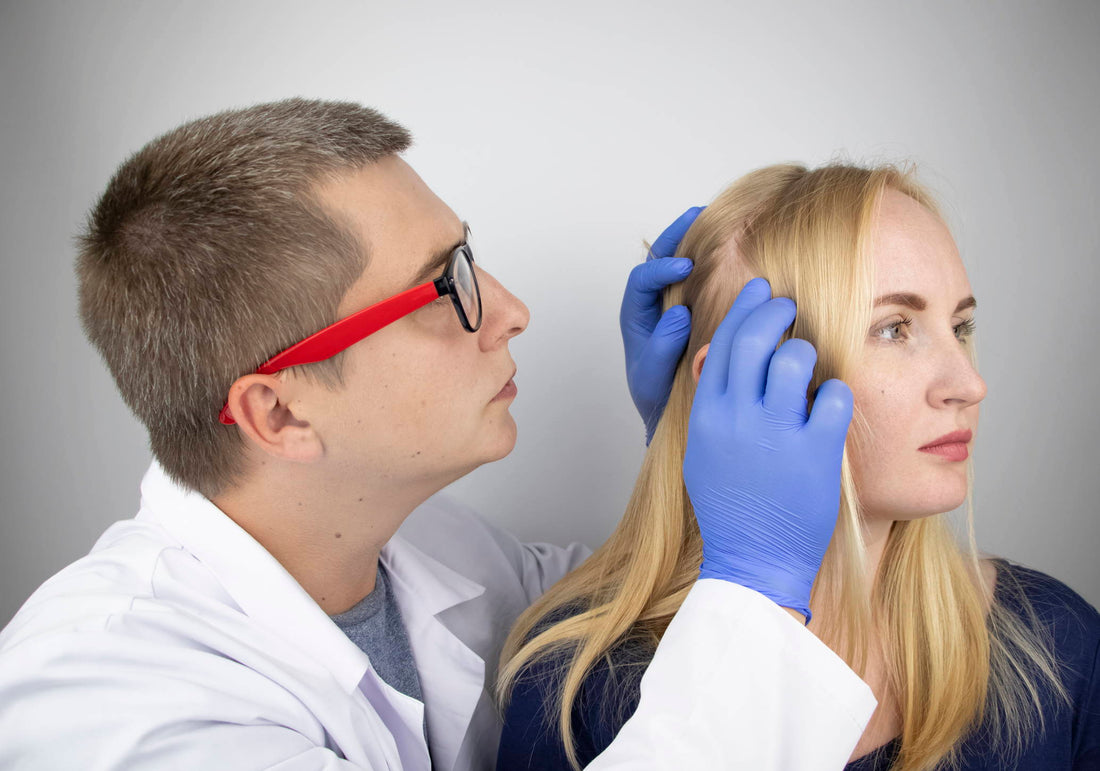Thanks to advances in technology and medicine, we now have more treatment options than ever for hair loss.
Medicines, minimally invasive procedures, and targeted clinical treatments can help promote hair growth and thickness, but it can take some time before visible results develop. If you’re impatient and want noticeable differences much sooner, scalp micropigmentation may be an option for you.
About Scalp Micropigmentation
Scalp micropigmentation or SMP (also known as hair tattoo) is a non-surgical procedure that covers bald spots or thinning hair.
The procedure entails the use of an electric tattoo device with thin needles. The needles create tiny, layered dots on the topmost layer of the skin (about 2 mm deep) where varying hues of cosmetic-grade black pigment are deposited. It can be used on various areas of the scalp to replicate the natural-looking appearance of hair follicles.
Since the pigment is selected to complement your natural hair color, it blends seamlessly with your hair without looking like you had any artificial treatments done.
It’s considered a semipermanent procedure with effects that can last up to eight years. This will also depend on your scalp’s condition (how dry or oily it is) and your skin’s natural exfoliating processes.
Who Can Get Scalp Micropigmentation?
Scalp micropigmentation creates the illusion of a fuller head of hair, giving you a tight “buzz cut,” close-cropped, or shaved hairstyle. It is semi-permanent and will last anywhere between 1 to 5 years.
Overall, it’s a viable, economical, and minimally invasive hair loss treatment option for those with:
- Alopecia areata
- Male or female pattern baldness
- Receding hairlines
- Scars or birthmarks on the scalp
- Limited diffuse thinning or dispersed hair thinning
It’s also a good option for hair loss due to chemotherapy or polycystic ovary syndrome (PCOS) and other hormonal conditions.
Are there people who aren’t good candidates for micropigmentation? Yes, if you have any of the following, micropigmentation won’t be a good option for you:
- Psoriasis
- Acne
- You’re prone to keloids or scarring
- You have needle and/or ink allergies
Does Scalp Micropigmentation Damage Hair Follicles?
If you notice hair loss after getting SMP, you may think that SMP caused it but that isn't the case.
Scalp micropigmentation is a procedure that is done near your hair follicles to create natural-looking depth, density, and definition of hair follicles. Hair follicles are significantly deeper inside the skin, so getting this treatment won’t damage your hair in any way.
At the end of the day, scalp micropigmentation isn’t a hair loss treatment.
The pigment injected into the dermis will not reach the follicle, so it won’t affect the natural growth cycle of your hair. If your hair follicles are in the active phase, they will grow with or without scalp micropigmentation.
So, if you’re experiencing any type of hair loss, it can easily be attributed to the growth cycle of hair.
Before you heave a sigh of relief, allow us to address another popular misconception: that folliculitis is a result of scalp micropigmentation. Is there any truth to the matter? Let’s explore.
Can Scalp Micropigmentation Cause Folliculitis?
No, scalp micropigmentation does not cause folliculitis.
Folliculitis refers to bacterial or fungal infections that cause inflammation of the hair follicles. It can appear on any part of the skin, including the scalp, and may look like bumps or pimples, which may feel itchy or sore. They usually occur after shaving and waxing.
Folliculitis usually clears up on its own, but sometimes requires professional help to treat. Otherwise, it can lead to permanent scarring and hair loss.
As always, prevention is better than cure, so we advise you to maintain proper scalp care before and after shaving to avoid irritation and prevent infections.
Can Scalp Micropigmentation Promote Hair Growth?
No. Scalp micropigmentation is a superficial treatment that gives your head the appearance of thicker hair. It does not affect your hair follicles or stimulate hair growth. It causes no damage to your existing hair and it doesn’t encourage new hair to grow either.
Scalp Micropigmentation: Quick, Affordable, and Instant Results
Hair loss and hair thinning problems can wreak havoc on your confidence and self-esteem. While medications and intensive treatments can help, they’re not effective for natural and/or genetic-related balding. They’re also more expensive, may entail surgery, and require more time to heal.
If nothing seems to work for your balding and thinning hair, micropigmentation is a great option that delivers quick and long-lasting results.
This minimally invasive procedure can reduce the appearance of hair loss by making your hair look thicker. It can also be used to make scars and birthmarks on the scalp less visible.
If you’re not happy with it, you can always try other treatment options like hair transplant surgery. Just make sure to give your skin enough time to heal before jumping ship.

